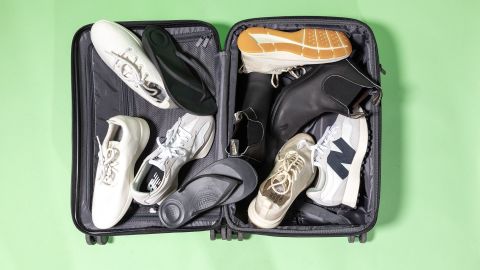CNN Underscored reviews financial products based on their overall value. We may receive a commission through our affiliate partners if you apply and are approved for a product, but our reporting is always independent and objective. Terms apply to American Express benefits and offers. Enrollment may be required for select American Express benefits and offers. Visit americanexpress.com to learn more.
Airline miles and hotel points have let me to experience travel that I could never afford nor thought was possible. Whether it’s flying in first class or staying in 5-star hotels around the world, points and miles have let me see the world in a completely different way.
There are numerous ways to earn airline miles and hotel points. Of course, the most straightforward way is the “old-fashioned way” — by flying with a specific airline or staying with a particular hotel chain.
There are also many airline and hotel credit cards that can help earn points and miles through everyday spending. Alternatively, you can earn transferable points like Chase Ultimate Rewards which transfer to various airline and hotel partners.
You can also purchase points and miles directly from the issuing airline or hotel loyalty program. But, just because you can, doesn’t mean you should (even if you get an email about a great discount.)
That said, buying miles isn’t always a bad idea — and in some cases, it can actually save you money when compared to paying for airfare or a hotel room outright. So, let’s look at when it is and isn’t a good idea to buy travel rewards.
When should you buy points and miles?

Airline and hotel loyalty programs sell points and miles as another source of revenue. Sometimes, they even offer promotions that lower the cost of points and miles.
Generally speaking, however, buying miles or hotel points is rarely a good idea. This is because the cost of buying points and miles is?usually?higher than the value of the points or miles themselves when redeemed for travel.
So, when does it make sense to spend your hard-earned money on airline miles or hotel points? Long story short, it’s only a good idea when you can get more value from the miles you purchased than what you paid for them.
Here are a few times when it might be a good idea to buy points and miles.
Beat expensive cash fares
If you have a specific trip in mind, you can sometimes get a better deal by buying points over paying for airfare or a hotel room outright. This is especially true when it comes to aspirational travel redemptions, like first or business class flights and luxury hotel stays, which are usually quite expensive.
For example, say you want to fly round-trip from Chicago to Tokyo in Japan Airlines (JAL) business class. Prices for this business class cabin experience are routinely over $10,000 round-trip.
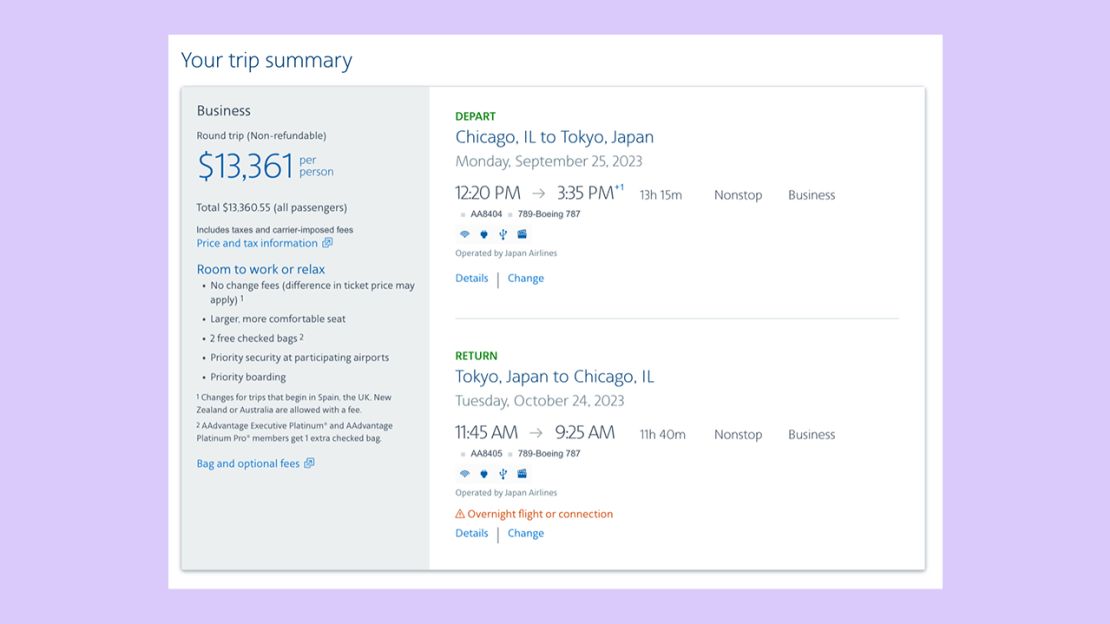
However, you can book these seats via the American Airlines AAdvantage loyalty program since American and JAL are both Oneworld members. In this case, you’ll pay just 120,000 miles and roughly $50 in taxes and fees for the same round-trip business class ticket from Chicago to Tokyo.
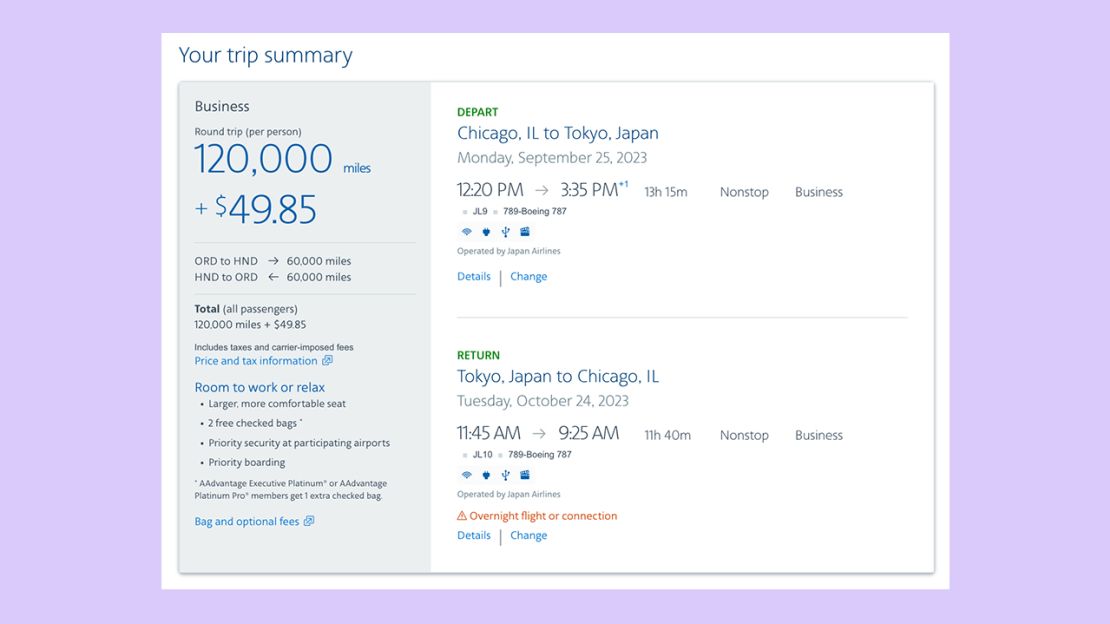
At the time of writing,?American is running a promotion that gives members up to 35% off the price of AAdvantage miles. With the promotion, you can buy the required 120,000 miles for for $3,386.25.

Although buying the necessary miles would set you back nearly $3,400, that’s significantly less than the retail price of the ticket.
To top off your account to book an award
Another scenario where it makes sense to buy points and miles is when you’re a few thousand miles short of booking an award flight or hotel stay. If you have a specific redemption in mind but don’t have quite enough points to book it, buying the necessary points or miles to make up the difference can be worthwhile.
Fortunately, most airline and hotel loyalty programs let you buy miles in small increments to top off your account. In most cases, you’ll want to buy as close to the exact amount of points or miles you need to make your redemption as possible.
When there’s a big discount
Most loyalty programs occasionally run promotions to incentivize buying points and miles. With these promotions, you can often buy points and miles for far less than their typical cost.
For example, at the time of writing, Air Canada Aeroplan is offering up to an 80% bonus on points purchased by Oct. 2, 2023. This drops the price to as low as 1.43 cents per point.
Travel website The Points Guy values Aeroplan points at 1.5 cents per point, so you’re buying them at less than their average value during this promotion. Plus, you can often get an even higher value when redeeming Aeroplan points for first and business class award tickets.
Not all promotions will be this good, so always run the numbers to see if you’ll get a good deal by buying points for a specific redemption.
When there are no transfer options
Lastly, purchasing points or miles could be a good strategy for accumulating rewards with airlines and hotels that do not partner with transferable points currencies like Chase Ultimate Rewards? or American Express Membership Rewards?.
Alaska Airlines Mileage Plan is a great example. Alaska miles are difficult to earn since you can’t transfer them from any major credit card programs. However, the program has a handful of excellent redemptions, like flights from the US to Asia in business class for as low as 55,000 miles. Redemptions like this could be worth buying miles for during a promotion.
Still, only buy miles when you have a specific redemption in mind, even if they’re hard to earn. Otherwise, you could be stuck with travel rewards you can’t easily redeem.
When shouldn’t you buy points and miles?
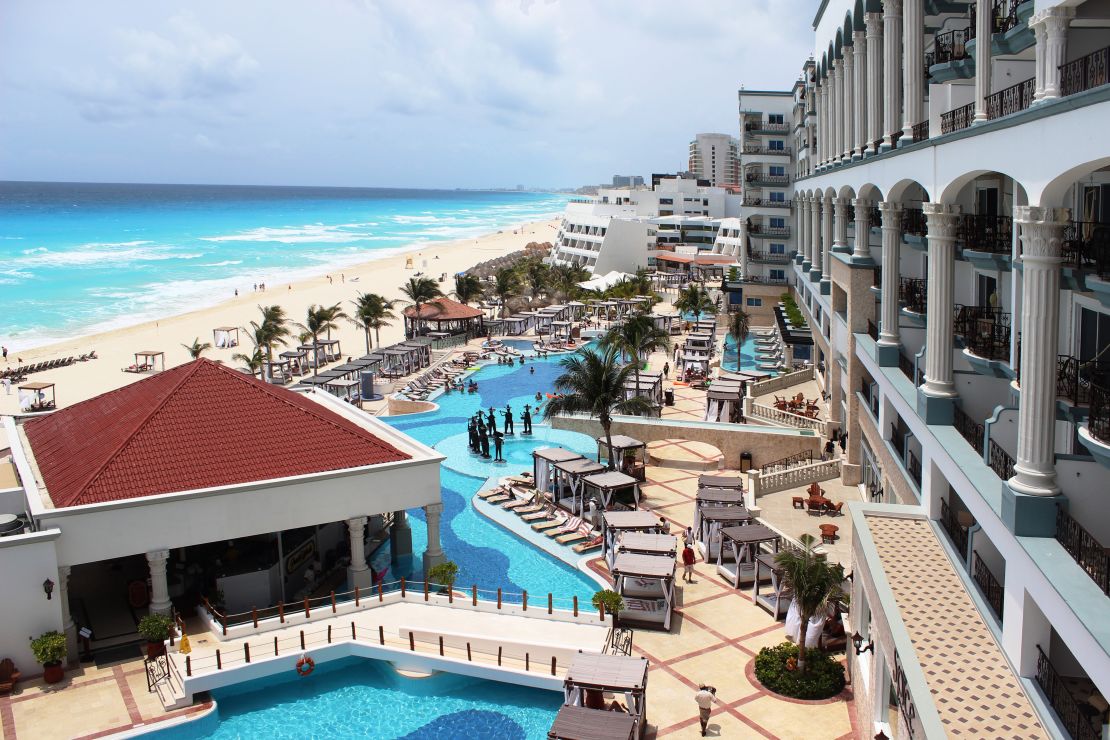
As discussed, buying points and miles without a plan to use them is usually a bad idea. Here are a few other times when you should not buy points and miles, no matter how good a sale may be.
Avoid buying points and miles without a promotion
Try to avoid buying points and miles at full price unless it is an absolute last resort and you need the points or miles immediately for a specific award ticket.
Since buy miles promotions happen often with most loyalty programs, it’s worth holding out for a bonus before buying points and miles. You’ll usually find the best promotions around shopping holidays (think Black Friday and Cyber Monday) and during off-peak travel times when airlines and hotel groups want to boost revenue.
See if you can transfer credit card points you already have
It is also not worth purchasing points and miles if you can transfer them in from one of your transferable points credit cards.
All of the major transferable points currencies have their own set of transfer partners. If you have American Express Membership Rewards points, Bilt Rewards Points, Capital One miles, Chase Ultimate Rewards points or Citi ThankYou points, look through their list of transfer partners before buying points or miles. You may be able to transfer the points you already have to book your desired flight or hotel room.
For example, Hilton Honors is an American Express transfer partner. So, if you have American Express Membership Rewards points, you can transfer them to the Hilton Honors loyalty program at a 1:2 ratio. This means 10,000 Amex points are worth 20,000 Hilton points with no out-of-pocket cost.
Also, remember that many airline loyalty programs let you book award tickets on their partners. For example, If you’re considering buying United miles to book a United flight but already have Citi ThankYou points, see if the flight is bookable with Avianca LifeMiles. If it is, transfer your Citi points to LifeMiles instead of buying United miles to book your ticket.
Don’t buy points or miles speculatively
Lastly, avoid buying points and miles without an immediate plan to use them, even if there’s a great promotion. Holding onto a stash of points and miles leaves them open to being devalued by the issuing airline or hotel.
We’ve seen various devaluations over the past two years from airlines like Alaska and United. Devaluations often mean that the cost to redeem miles for award travel goes up with little or no notice, making your miles worth less than they were when you bought them.
Pay for points and miles with the right credit card
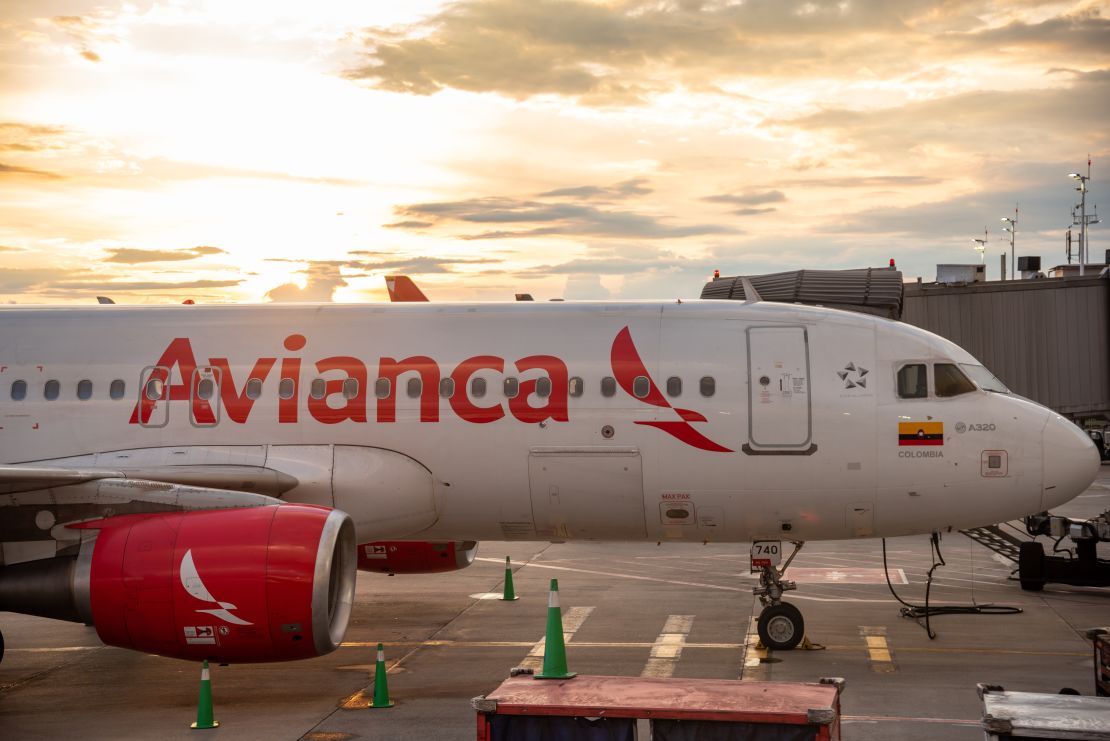
If you find a time when it makes sense to buy points and miles, make sure you pay for them with the right credit card. After all, earning as many points as possible on your purchase will get you closer to your next big trip.
Unfortunately, points and miles purchases rarely code as a travel purchase with major credit cards. This means the Chase Sapphire Preferred? Card and other cards that earn bonus points on travel will not earn the multiplier when buying points or miles.
So, try and use a credit card that earns more than 1 point per dollar on?all?purchases. Here are a few of our favorite cards that fall into this category, alongside their welcome offers, earn rates and annual fees.
- Capital One Venture Rewards Credit Card: Earn 75,000 bonus miles once you spend $4,000 within the first three months from account opening, plus $250 to use on Capital One Travel your first cardholder year. This card earns 2 miles per dollar spent on most purchases. $95 annual fee.
- Capital One Venture X Rewards Credit Card: Earn 75,000 bonus miles after spending $4,000 on purchases in the first three months from account opening. This card earns 2 miles per dollar spent on most purchases. $395 annual fee.
- The Blue Business? Plus Credit Card from American Express: Earn 15,000 bonus points after you spend $3,000 on purchases in the first three months from account opening. This card earns 2 points per dollar on all purchases (up to $50,000 per year, then 1 point per dollar). $0 annual fee (see rates and fees).
Alternatively, if you’re buying a lot of points, consider opening a new credit card that has a high welcome offer for new cardmembers. This way, you can quickly earn a welcome bonus to jumpstart your progress toward your next trip.
- Marriott Bonvoy Bevy? American Express? Card: Earn 155,000 bonus points after you use your card to make $5,000 in purchases in the first six months of account opening. $250 annual fee (see rates and fees).
- Ink Business Unlimited? Credit Card: Earn $900 bonus cash back after you spend $6,000 on purchases in the first three months of account opening. $0 annual fee.
- Capital One Venture X Business: Earn 150,000 bonus miles after you spend $30,000 on purchases in the first three months of account opening. $395 annual fee.
One last note: If you’re buying points or miles from a foreign airline or hotel group, make sure you purchase with a credit card that doesn’t add foreign transaction fees. Otherwise, you could pay a fee for making your purchase in a foreign currency
Bottom line
Buying points and miles isn’t generally a good idea. Often, the cost associated with purchasing points and miles exceeds the value of the points themselves.
But as you’ve read here, there are situations where buying points and miles makes sense. Notably, it’s sometimes worth buying miles when you can redeem them for more value than what you paid for them.
Just remember that points and miles can be devalued at any time, so it’s only worth buying points and miles when you have a specific redemption in mind. It’s also important to find the award space you’d like to book before buying points and miles as availability can change quickly.
Click?here?for rates and fees of the Amex Blue Business Plus card.
Click?here?for rates and fees of the Marriott Bonvoy Bevy card.
Looking for a new travel credit card? Check out CNN Underscored’s list of the?best credit cards?currently available.



